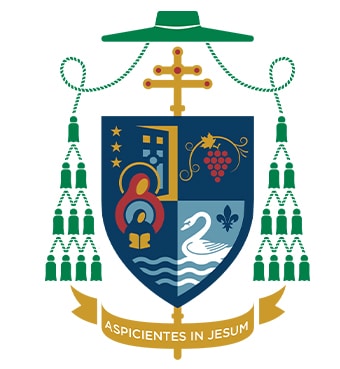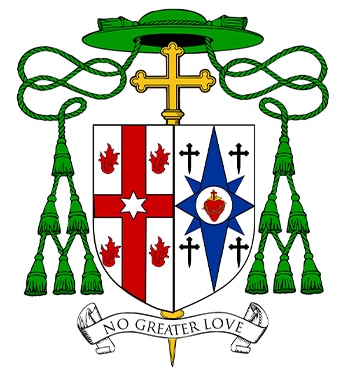Rekindling Eucharistic Belief

On Sept. 12, Pope Francis will travel to Budapest, Hungary, to celebrate the closing Mass of the 52nd International Eucharistic Congress. Like other recent popes who attended past Eucharistic Congresses, his trip will bring into focus the total centrality of the Eucharist to our Catholic faith and will remind us all of our need for the Bread of Life.
In this time of pandemic, when we have been restricted from participating in Eucharistic worship — including attending the Budapest gathering that was originally set for last September — this papal reminder is more urgently needed than ever.
Pope Francis prefaced the message of his upcoming trip to Budapest in his Aug. 22 Angelus comments that reflected on the Gospel of John in which Jesus communicated to a crowd of his disciples that only those who “eat my flesh and drink my blood have eternal life.” Many of Jesus’ followers were so scandalized by his insistence that they must consume his Body and Blood that they turned away from him. The Pope noted how this “scandalousness” of the Eucharist remains present today. “What sense can there be, in the eyes of the world, in kneeling before a piece of bread?” he said. “Why on earth should someone be nourished assiduously with this bread?”
Unfortunately, disbelief about the reality of the Real Presence, and its centrality to the Catholic faith, is not restricted to the secular world. Recent polls of U.S. Catholics have found that only half of them agree with the Church’s foundational teaching that Jesus becomes truly present physically in the Eucharist every time a Catholic Mass is celebrated. This disbelief stems primarily from a catechetical failure to communicate this truth of faith. But for more than a few Catholics, their unbelief is also tethered to a false claim that the Second Vatican Council irrevocably reoriented the Church primarily toward the pursuit of social justice, instead of adherence to supposedly “stale dogmas” like belief in the Real Presence. And some Catholics go even further, falsely asserting that Pope Francis has endorsed this view himself.
It’s certainly true that, throughout his eight-year pontificate, the Pope has consistently and forcefully emphasized the importance of living out our Christian calling through service to others, and most especially to those who are marginalized, materially and spiritually. But it’s categorically untrue to imply the Holy Father has in any way disconnected this Catholic love of neighbor from the Catholic love of God, experienced mysteriously yet concretely in our encounter with Christ in the sacrament of the Eucharist. Indeed, Francis has stressed repeatedly that it’s only through our Eucharistic relationship with Jesus that we can be formed fully as Christ’s followers to see his presence in those who suffer, and thus be inspired to accord them the love and justice they deserve.
Budapest’s International Eucharistic Congress, which takes place Sept. 5-12, has as its fundamental mission to make the faithful aware that “the Eucharist is the source and summit of the Church’s life” and “to reinforce the faith, the knowledge, and the apologetics of Catholic faithful … so they would live a consistent Christian life and continue the work of the Good News of salvation with a renewed missionary spirit.”
Read more at National Catholic Register







